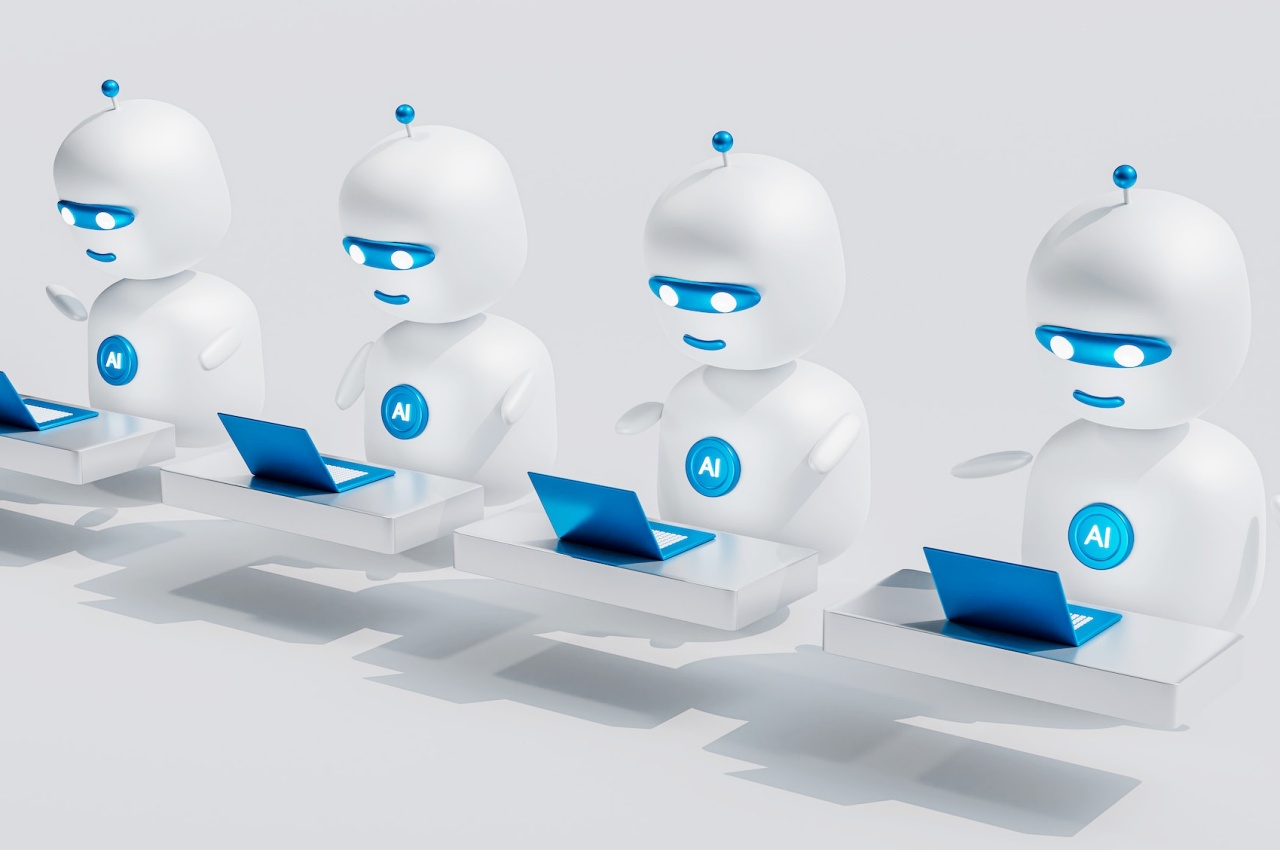POSCO Group, a leading steel manufacturer based in South Korea, revealed it will create its own AI tool that'll replace OpenAI’s ChatGPT in the company. With this move, the company just joined LG Electronics and Samsung Electronics in the quest to develop their own alternatives to the artificial intelligence chatbot tool.
POSCO said that the AI tool will be exclusively used by its own employees. It made the decision to build its own chatbot due to fears of leaking data and company technologies through the use of generative AI platforms such as ChatGPT.
The steelmaker’s generative AI tool is already in development, and it is said to be a better version of the ChatGPT app, which it added to its internal computer network in March. It was reported that POSCO Holdings Inc. is leading the development of the new AI system with its own research institute and software developer, POSCO DX Co., as per The Korea Economic Daily.
The Super AI that they are building is allowed to gather both internal and external data to find exact matches of their searches within the company, and this will be in a dialogue format similar to ChatGPT. The POSCO Group expects the integration of the super AI to improve the company’s operational efficiency without worrying about leaking any confidential data. It also believes that this will lessen the time for data searches of employees for research journals, patents, and specialty publications.
Meanwhile, other South Korean tech firms, including Samsung Electronics and LG Electronics, have also started developing their own AI chatbots. This comes after the former banned its employees in the smartphone and home appliance units from using ChatGPT and other generative AI tools.
Samsung issued a restriction for the use of ChatGPT after an employee accidentally leaked confidential data via the chatbot. Business Korea previously reported that other major companies like POSCO and SK hynix believe that the process of inputting data to get answers from the AI ChatGPT heightens the likelihood of leaking sensitive company information; thus, it would be better to develop their own in-house generative AI services.
Photo by: Mohamed Nohassi/Unsplash



 Washington Post Publisher Will Lewis Steps Down After Layoffs
Washington Post Publisher Will Lewis Steps Down After Layoffs  Google Cloud and Liberty Global Forge Strategic AI Partnership to Transform European Telecom Services
Google Cloud and Liberty Global Forge Strategic AI Partnership to Transform European Telecom Services  Sony Q3 Profit Jumps on Gaming and Image Sensors, Full-Year Outlook Raised
Sony Q3 Profit Jumps on Gaming and Image Sensors, Full-Year Outlook Raised  SpaceX Pushes for Early Stock Index Inclusion Ahead of Potential Record-Breaking IPO
SpaceX Pushes for Early Stock Index Inclusion Ahead of Potential Record-Breaking IPO  SpaceX Updates Starlink Privacy Policy to Allow AI Training as xAI Merger Talks and IPO Loom
SpaceX Updates Starlink Privacy Policy to Allow AI Training as xAI Merger Talks and IPO Loom  Toyota’s Surprise CEO Change Signals Strategic Shift Amid Global Auto Turmoil
Toyota’s Surprise CEO Change Signals Strategic Shift Amid Global Auto Turmoil  Jensen Huang Urges Taiwan Suppliers to Boost AI Chip Production Amid Surging Demand
Jensen Huang Urges Taiwan Suppliers to Boost AI Chip Production Amid Surging Demand  Fed Governor Lisa Cook Warns Inflation Risks Remain as Rates Stay Steady
Fed Governor Lisa Cook Warns Inflation Risks Remain as Rates Stay Steady  Silver Prices Plunge in Asian Trade as Dollar Strength Triggers Fresh Precious Metals Sell-Off
Silver Prices Plunge in Asian Trade as Dollar Strength Triggers Fresh Precious Metals Sell-Off  Thailand Inflation Remains Negative for 10th Straight Month in January
Thailand Inflation Remains Negative for 10th Straight Month in January  Trump Endorses Japan’s Sanae Takaichi Ahead of Crucial Election Amid Market and China Tensions
Trump Endorses Japan’s Sanae Takaichi Ahead of Crucial Election Amid Market and China Tensions  Gold and Silver Prices Slide as Dollar Strength and Easing Tensions Weigh on Metals
Gold and Silver Prices Slide as Dollar Strength and Easing Tensions Weigh on Metals  SpaceX Prioritizes Moon Mission Before Mars as Starship Development Accelerates
SpaceX Prioritizes Moon Mission Before Mars as Starship Development Accelerates  Rio Tinto Shares Hit Record High After Ending Glencore Merger Talks
Rio Tinto Shares Hit Record High After Ending Glencore Merger Talks  Amazon Stock Rebounds After Earnings as $200B Capex Plan Sparks AI Spending Debate
Amazon Stock Rebounds After Earnings as $200B Capex Plan Sparks AI Spending Debate  Gold Prices Slide Below $5,000 as Strong Dollar and Central Bank Outlook Weigh on Metals
Gold Prices Slide Below $5,000 as Strong Dollar and Central Bank Outlook Weigh on Metals  Tencent Shares Slide After WeChat Restricts YuanBao AI Promotional Links
Tencent Shares Slide After WeChat Restricts YuanBao AI Promotional Links 































